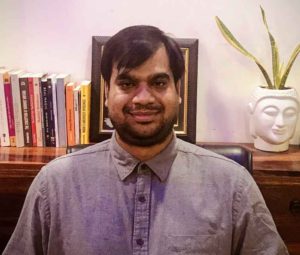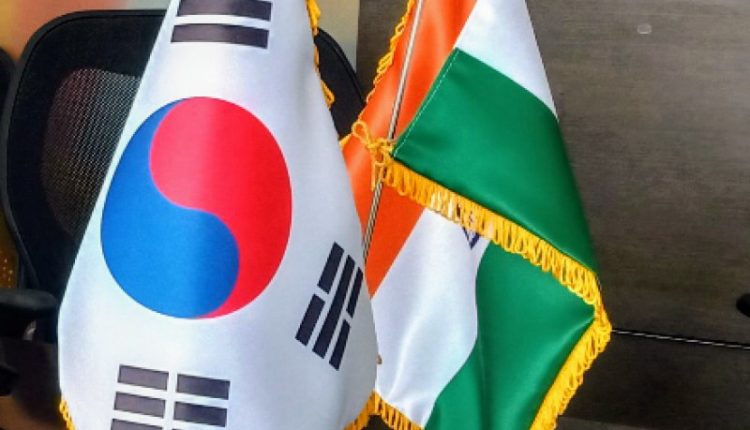Here is what Indians and Koreans can learn from each other
The article offers advice to put forward the psychological understanding of Korea, particularly Time, Work, and Health (TWH), which forms the basic ideas, one should have known while interacting with Koreans. India strongly advocates the idea of Philosophy, Diversity, and Human Relations (PDH).
By Vikas Pawar
The journey of India-Korea relations begins with an account of Princes Ho Hwang Ho and King Kim Suro, which is unearthed in contemporary times. Before this account, Buddhism was considered to be the strongest ancient cultural links between India-Korea.
This deep-rooted history has been cherished and admired by the two countries from time to time and set solid platforms to build amicable relationships. These ancient cultural connections act as a bridge to enhance the relationship and drew people to people connection in recent times. After independence, both nations commenced developing bilateral agreements to boost trade and relationships.
However, my intention is not to re-look and present it here. The article attempts to understand the fundamental ideas of both the nations which are seen by basic perceptions and could operate as an exchange for better understandings without addressing the bilateral agreements or high-level engagements.
The basic understanding of both nations was undermined and understudied, despite analysing the bilateral cooperation and their actions and reactions. In addition to this, I put forward the psychological understanding of Koreans; particularly Time, Work, and Health (TWH), which forms the basic idea, one should have known while interacting with Koreans.
On the other hand, India strongly advocates the idea of Philosophy, Diversity, and Human Relations (PDH). However, there are countless points to concentrate but I argue that TWH and PDH are essential which could be applied to exchange for fostering strong and healthy partnerships for penetrating deeper psychological understandings between the two countries. The prior understandings of these vital points before engaging with each other could mutually develop more respect and help to avoid unnecessary irritation while forming any formal or informal ties.
 South Korea as a nation is depicted dynamic at the economic front by western scholars. This characteristic is being studied and investigated by many scholars of Korean Studies to reveal the stories of ‘miracle on Han River’. ‘High-end human values’ were an important key to Korea’s success. If one examines Korea after Independence from Japan, will come to notice its development of ethical attitudes. Let me put some of them categorically.
South Korea as a nation is depicted dynamic at the economic front by western scholars. This characteristic is being studied and investigated by many scholars of Korean Studies to reveal the stories of ‘miracle on Han River’. ‘High-end human values’ were an important key to Korea’s success. If one examines Korea after Independence from Japan, will come to notice its development of ethical attitudes. Let me put some of them categorically.
- Koreans are time-oriented people. If you don’t fix the time in advance, Koreans would never meet you. Most of the Koreans have a plan in advance for the next day.
- Koreans believe in teamwork even in dinning. The dishes are designed for a set of three-people, four-people, five-people, and so on in Korean restaurants.
- The unfair means of business practices are not followed by Koreans. They are trustworthy in monetary transactions.
- Regular stretching and exercise by the health-conscious Korean people to give the best to their work is also a well-known practice.
- The wages are distributed to labour according to their capacity of work irrespective of nationality. Unlike Saudi Arabia, where foreign labour is less paid compare to a native.
- Youth is guided with proper knowledge and wisdom by the elderly people.
- Korean culture is blended with East Asian culture while western knowledge paves the growth of another level of sensational outburst to highly refined human values.
- Korea is a stereotype to many countries in the world, it is bigger than many European states. Its proximity near to China brings a psychological understanding of Korea being a small state.
- Mountain terrain makes them a mountain hikers by default. Love towards nature makes them more naturalists then industrialists.
- Practices of dealing with customers are very polite in shops.
What India can learn from Korea? Although the learnings are many but to the quality of Time, Work and Health are very important. It is advised to Indians to understand Time promises, working attitude, and health consciousness, which we can directly imitate Koreans style.
- It is highly recommended to follow the Korean Time for meetings, arrival, and departure of train and bus metro, beginning of class. Time promises strictly need to follow in which Indians are considered a bit slow.
- Koreans planned their work and try hard to finish it without any excuse. Concentration on work and introduction of healthy work practices at the workplace. Indians need to finish their work within assigned time without any excuse and can copy the Korean working styles.
- Health is wealth an old sayings popular in both cultures. But the unique in Korean in which Koreans strictly take time for exercise and maintain their health status particularly female health.
What Korea can learn from India? Simplistic Korea and Complicated India merge on various point of cultural attitude. India’s mysterious civilizational treasures of knowledge can be exchanged to Korea in the form of philosophy, Diversity, and Human Relations (PDH).
- India is a land of philosophies and Religion (Buddhism, Hinduism, Sikhism, and Jainism) which accommodate universal values and world views. The goal of philosophies could be human peace. The stressful Korean life could adopt the philosophies of India for generating Peace.
- Diversity is a vital characteristic of Indian Civilization throughout the historical discourse and hence still it is. The interactions of multi-diverse Indians are routine practice, however, Korea is fast growing as a multi-cultural society due to its export-oriented economic policy. Lessons from harmony and acceptance of diversity could be easily learned by Koreans
- In addition to Indian vital characteristics, human relations matters a lot with Indians. On the other side, South Korea with growing urbanisation has lost many crucial human relationships.
There is no doubt that both these nations attracted interest but without the deep psychological penetration, understanding could not yield the desired results. The idea of TWH and PDH is not about the exchange but it is for mutual points to be understood.
About the Author
E-mail: vikas0388@gmail.com
 Vikas Pawar is a senior research scholar affiliated at the Centre of East Asian Studies, Jawaharlal Nehru University, Currently writing his thesis on Tittle ‘ Revival of Korean Buddhism during Japanese Colonial Rule: Strategies of Cooperation and Resistance’. He holds Bachelor’s and Master’s Degree in Korean Language and Literature from Jawaharlal Nehru University, New Delhi. He has written his M.Phil. Dissertation on Tittle ‘Narrative as an Instrument in India Korea Relations: A Case Study of Ayodhya Princess Legend’. (2016) to Centre of East Asian Studies, Jawaharlal Nehru University, New Delhi. His Area of academic and research interest are Korean, Culture and literature, comparative cultural studies, India-Korea Cultural Relations, Korean Buddhism during the Colonial Period.
Vikas Pawar is a senior research scholar affiliated at the Centre of East Asian Studies, Jawaharlal Nehru University, Currently writing his thesis on Tittle ‘ Revival of Korean Buddhism during Japanese Colonial Rule: Strategies of Cooperation and Resistance’. He holds Bachelor’s and Master’s Degree in Korean Language and Literature from Jawaharlal Nehru University, New Delhi. He has written his M.Phil. Dissertation on Tittle ‘Narrative as an Instrument in India Korea Relations: A Case Study of Ayodhya Princess Legend’. (2016) to Centre of East Asian Studies, Jawaharlal Nehru University, New Delhi. His Area of academic and research interest are Korean, Culture and literature, comparative cultural studies, India-Korea Cultural Relations, Korean Buddhism during the Colonial Period.




This article is innovative and introduce new knowledge like TWH and PDH to both countries.👍👍